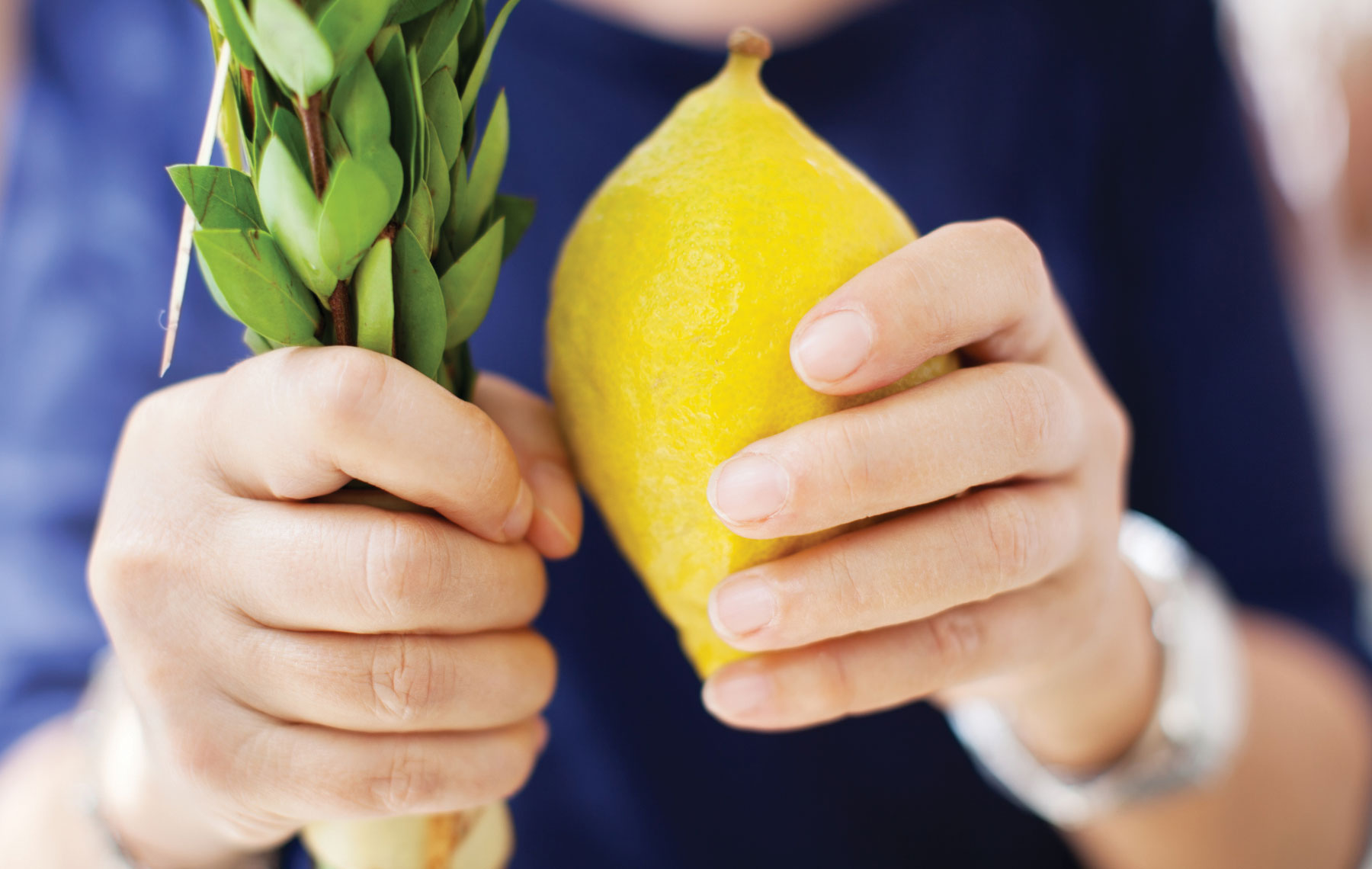
The Jewish tradition, for all of its philosophical ideals, loves the concrete. We love to touch and hold things. We light candles, we hold Kiddush cups, we bake challahs, we eat matzo around seder tables with countless rituals, we dance with Torah scrolls, we put on Purim costumes, and on and on. The concrete makes the values real.
During the High Holy Days, when we contemplate ideals such as atonement and repentance, the concrete ritual is the blowing of the shofar, an instrumental primal scream to awaken the soul.
Perhaps the most concrete and quirky of all Jewish holidays is the one that folows Yom Kippur, the festival of Sukkot, when, among other things, we hold etrogs and lulavs and build outdoor sukkahs. The idea of holding holiday meals inside a hut takes ritual to a whole other level.
Just as a Passover seder connects us to the story of our ancestors, so does the sukkah. As Rabbi Adam Kligfeld writes in our cover story:
“Even as a 13-year-old, I had instant and poignant identification with the Israelites in the desert, whose protection and very roofs are what we commemorate, and celebrate, as we Jews put up the very temporary booths of Sukkot. Jewish law commands that for the eight days of the holiday, we exit our permanent dwellings to re-create (without truly exposing ourselves to the elements as our ancestors did) the experience of our forebears in the desert. Some observe this by eating all meals in the Sukkah. Some go further and do most/all the things one would normally do in one’s house, such as read, play, sleep and entertain guests, in the sukkah.
I rediscover that lesson every Sukkot — the powerful permanence of a timeless table inside a fragile booth.
“On Sukkot, the permanent, the stable and the firm yield to the temporary, the vulnerable and the flimsy.”
Kligfeld personalizes his connection to the holiday by weaving in a childhood story dating back to 1985, when Hurricane Gloria hit his hometown in Connecticut two days after Yom Kippur.
“By the time Gloria hit,” he writes, “our sukkah was on our back porch. I remember being in the kitchen when some combination of a lightning strike and powerful winds split the twin oak tree in our backyard. One of the ‘branches’ of the ‘Y’-shaped tree broke off and flew toward our kitchen while I was watching. It landed inches from our home.”
This childhood memory helped give him that “instant and poignant identification with the Israelites in the desert.”
This is the value of the concrete — it sticks with us. It creates indelible images. Just as the concreteness of a hurricane creates devastating memories, so does a sukkah in a backyard create powerful childhood memories.
Oddly enough, the concrete thing that especially moves me on Sukkot is the table inside the sukkah.
This is one of the paradoxes of Sukkot — we are commanded to rejoice, but, as Kligfeld writes, because the joy cannot be shared by everyone, it’s a joy that is “never perfect.”
The frail sukkah may be impermanent, but the table is solid and forever; it’s where we sit, commune and commit to a shared experience. Whether one lives in a mansion or a humble abode, it is the table that has kept Jews going for millennia. While I was growing up in Montreal, it was the glorious Friday night Shabbat table inside our humble apartments that kept our family together.
I rediscover that lesson every Sukkot — the powerful permanence of a timeless table inside a fragile booth.
But as Kligfeld reminds us, there are other, no less important, lessons of Sukkot, such as remembering those who are constantly humbled by fragile booths. He writes about a frail “sukkah” he saw recently: “It was put up by a homeless person in our neighborhood. Our schach, made of bamboo or palm fronds, are symbolic roofs. This person’s schach, made of a weathered blanket and some cardboard boxes, was an actual roof.”
For those with no homes, symbols are a luxury. Everything is all too real, all too concrete. This is one of the paradoxes of Sukkot — we are commanded to rejoice, but because the joy cannot be shared by everyone, as Kligfeld writes, it’s a joy that is “never perfect.”
As we feel this imperfect joy emanating from our humble sukkahs and our sturdy tables, let us not forget those for whom living in frail huts is not a holiday symbol, but an everyday ritual.
We ought to touch them, too.


































 More news and opinions than at a Shabbat dinner, right in your inbox.
More news and opinions than at a Shabbat dinner, right in your inbox.